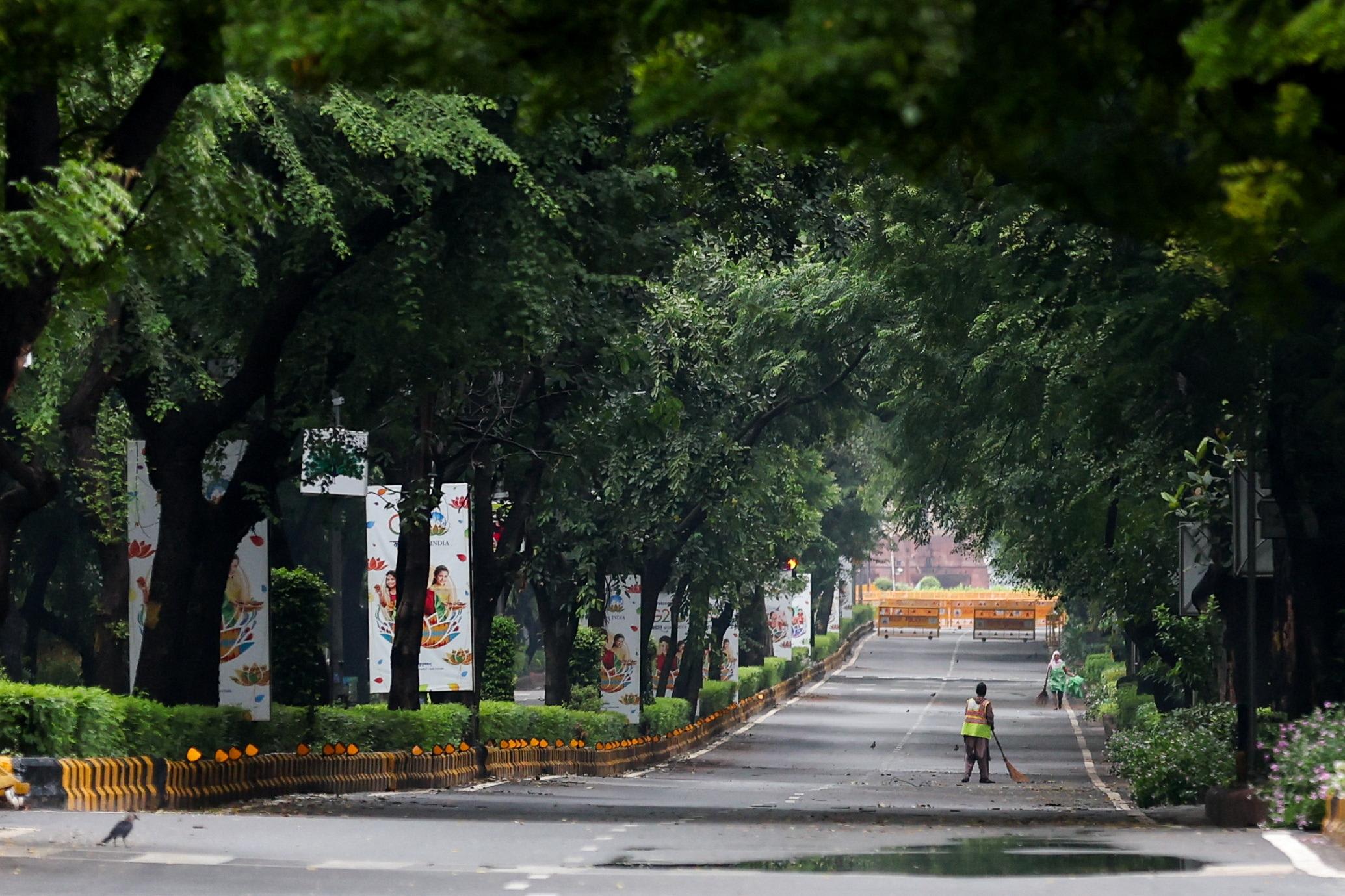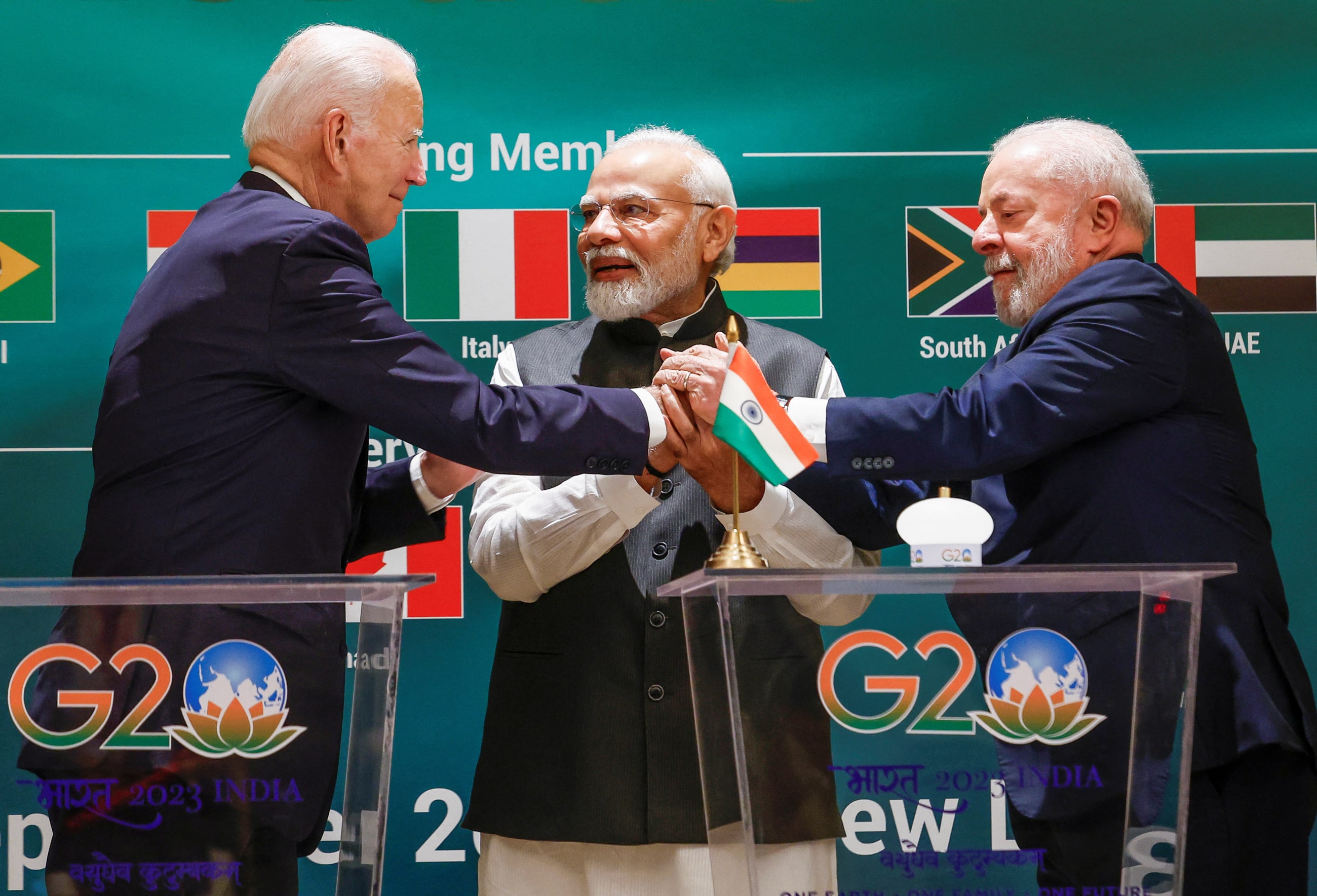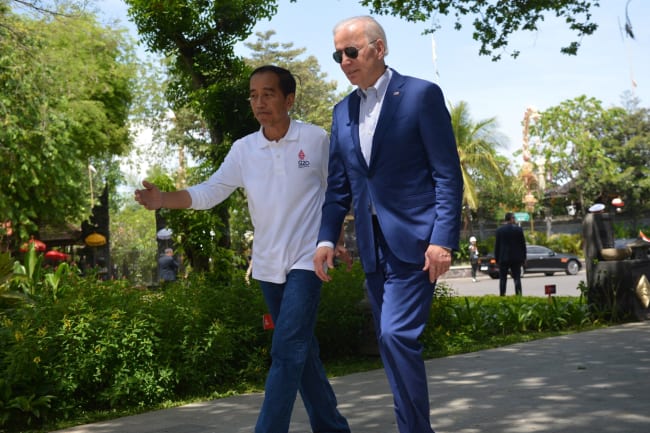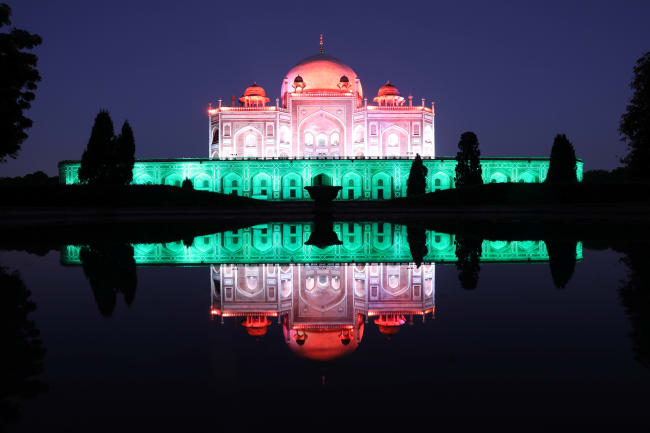To the surprise of many, the Group of Twenty (G20) reached consensus on a declaration early at its New Delhi summit in September. That outcome did not arise because agreement was forged on issues that divide members of the group, particularly the war in Ukraine. The declaration also did not represent any diminution in geopolitical competition between the United States, on the one hand, and China and Russia, on the other. The decisions by China's president Xi Jinping and Russia's president Vladimir Putin not to attend suggested that the summit did not serve Chinese and Russian national interests.
One interpretation of the New Delhi declaration is that, to quote former National Security Advisor John R. Bolton, it is another river of "deathless prose" from another summit that contributes to "global deforestation but little else." A different explanation focuses on India's role and ambitions as the summit's host. Through this lens, the declaration reflects India's attempt to elevate itself as a global, nonaligned power that champions a development agenda for low- and middle-income countries (LMICs).
As past G20 summits have, the New Delhi gathering included global health in its declaration. Read against India's interests, global health issues fold into its objectives of nonalignment and development. The New Delhi declaration will no more move the needle on global health problems than previous G20 summit statements have done. What the declaration accomplishes instead is advancing India's ambitions in a world damaged by cascading crises and riven by geopolitics — an outcome that has important implications for global health.
What the [New Delhi] declaration accomplishes instead is advancing India's ambitions in a world damaged by cascading crises and riven by geopolitics
No U-Turn on Ukraine
At the Bali summit in 2022, the Ukraine war roiled efforts by G20 leaders to finalize a declaration and produced tortured wording that papered over divisions about the G20's role concerning that conflict. The New Delhi declaration did not deviate from the Bali outcome and even diluted the diplomatic phrasing in ways that pleased Russia. Even so, G20 members reached consensus on the declaration earlier than most experts expected, avoiding the acrimony experienced at the Bali summit.
That outcome reflects India's embrace of nonalignment more than American, Chinese, and Russian efforts to find allies and form likeminded coalitions in competing for power and influence. As between those heavyweights, keeping the G20 out of the geopolitics of the Ukraine war best served India's interests in nonalignment. As summit host, India's commitment to nonalignment raised the stakes for other countries, especially the United States and other members of the Group of Seven (G7), for risking the summit's failure — and India's anger — by demanding more from the G20 on Ukraine.
Nonalignment, What Is It Good For?
As with many diplomatic documents, the New Delhi declaration identified numerous challenges that require action. Such documents often read like laundry lists of issues without coherency or prioritization. Viewed with India's nonalignment strategy in mind, the declaration contains a wide-ranging development agenda that seeks to increase economic growth for, resource transfers to, and global governance involvement of LMICs in the Global South.
Restoring global economic growth that supports progress on the UN's Sustainable Development Goals (SDGs) featured in the New Delhi declaration. The declaration noted that, in 2023, only 12 percent of the SDGs are on track to be achieved by the 2030 target. It identified climate change as a threat to economic growth, especially for LMICs, that requires better climate mitigation and adaptation strategies.
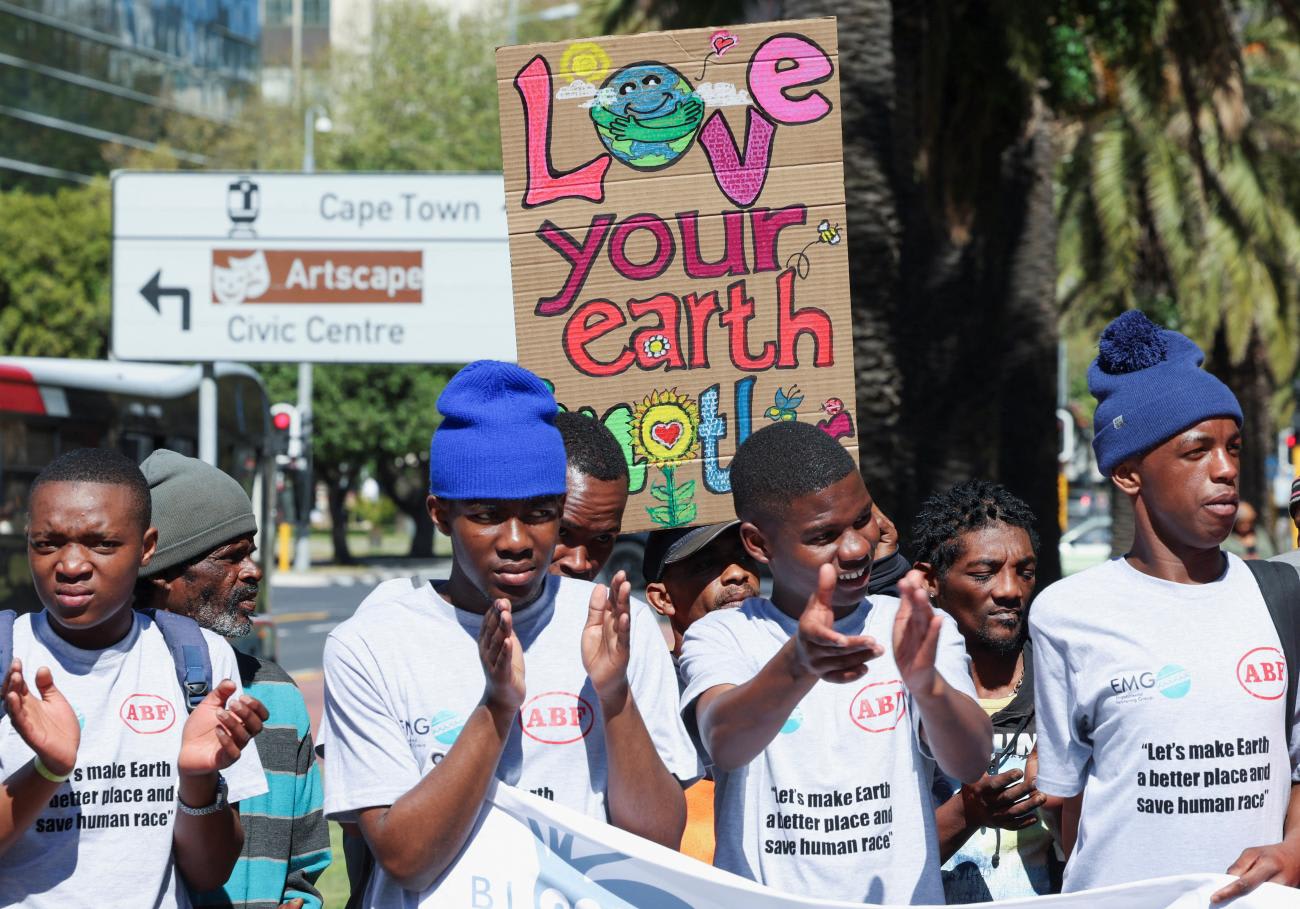
The objectives of increasing economic growth, accelerating the SDGs, and tackling climate change create the need for substantial transfers of financial and other resources from high-income countries to LMICs. Concerning climate financing alone, the New Delhi declaration emphasized the need to scale up climate aid from "billions to trillions of dollars" — with nearly $6 trillion total required by 2030 to help developing countries and $4 trillion per year in the same period for clean energy technologies to help such countries reach net zero emissions by 2050.
To advance the development agenda, the New Delhi declaration supported increasing the voice of the Global South in global governance by, for example, reforming multilateral development banks. The G20 contributed to this goal by making the African Union (AU) a permanent member of the group. This move accentuates India's leadership among countries pursuing nonaligned economic and development policies.
Health, Development, and Nonalignment
The New Delhi declaration embedded health issues within its development strategy. It identified often-emphasized challenges—such as enhancing pandemic preparedness and tackling antimicrobial resistance—and backed long-standing objectives, including primary health care, the One Health approach, and equitable access to pharmaceutical countermeasures. Concerning the G20's role in the Pandemic Fund, the declaration noted the first and second calls for proposals to be completed by the end of 2023 and highlighted "the importance of securing new donors and co-investment" for the fund.
The amount of climate aid in dollars required by 2030 to help developing countries
The familiarity of the health portions of the New Delhi declaration suggested that G20 members were not focused on transformative actions. The more interesting questions arise from how the priority given to development—informed by India's nonalignment strategy—could affect global health diplomacy. India's opposition to using the G20 to address the threat that Russia's invasion of Ukraine poses to G7 countries, combined with its desire to advance nonalignment, indicated that decades of unrivaled global health leadership by G7 members (including providing most of the Pandemic Fund's resources) have not generated geopolitical benefits for those Western democracies in their relations with countries in the Global South, including India.
India's nonalignment push also signals that high-income democracies will need to increase their development assistance substantially, especially on climate change, to retain credibility with India and the Global South. The U.S. acceptance of the New Delhi declaration's watered-down language on the Ukraine war underscored Washington's need to placate India given its importance in counterbalancing China and leading a new nonaligned movement. The U.S. delegation departed the G20 summit spurned on the Ukraine crisis and confronted with demands from nonaligned countries in the Global South for a greater voice in global governance and significant increases in development assistance. Well played, India.
Whither the G20 after New Delhi?
The G20 summit's outcome could mark the moment that geopolitics rendered the group less important to China, Russia, and the United States. With the New Delhi declaration effectively ending G20 debates about the Ukraine war, Russia's immediate interests in the group's work are satisfied. Bogged down by the war, Russia cannot play a significant role in funding the declaration's development agenda. President Xi's decision to skip the summit sent a message about the G20's declining relevance to China's plans to enhance its global power and influence, which do not include increasing Chinese development assistance to support an Indian-led, nonaligned agenda.
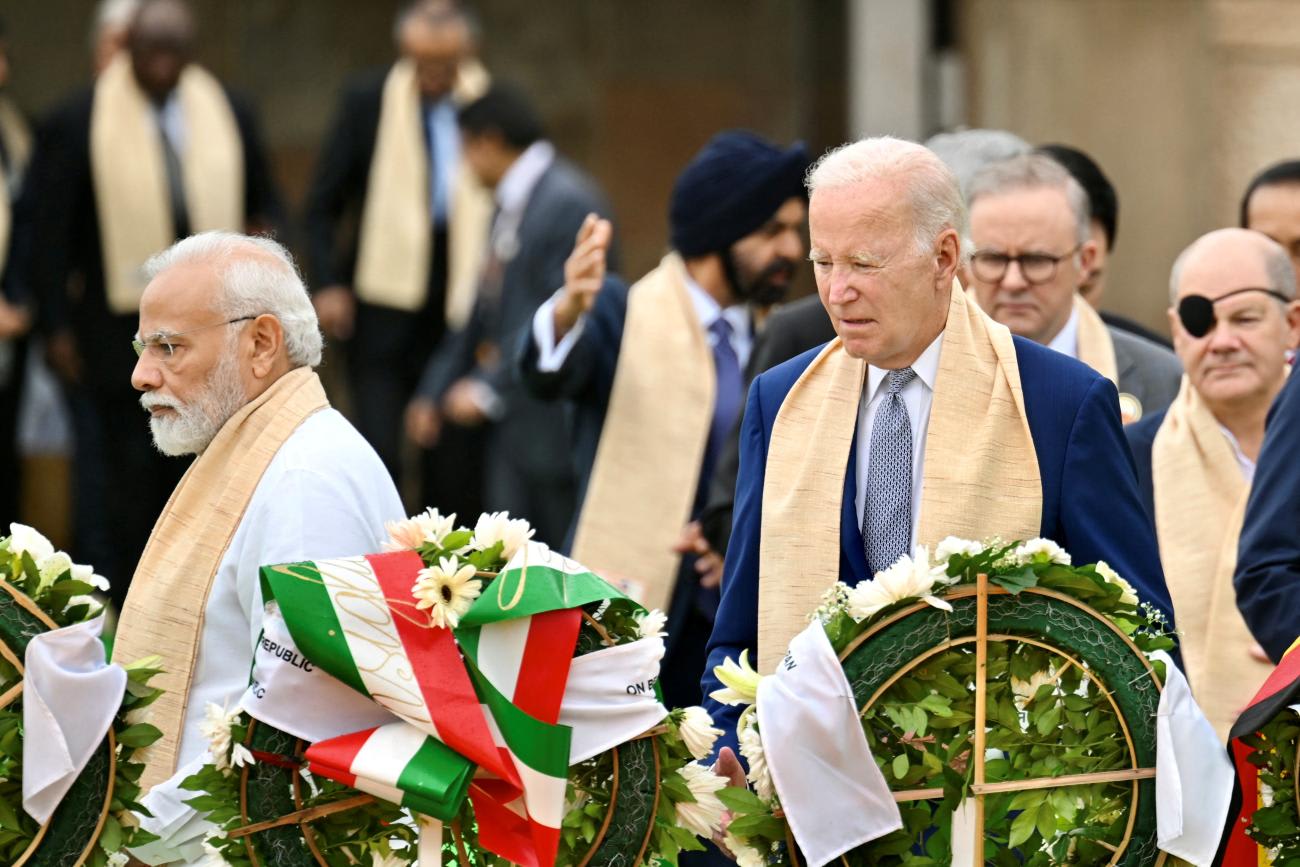
After the New Delhi summit, the G20 no longer looks conducive to advancing U.S. interests. The United States has twice been rebuffed on the Ukraine war, despite the grave dangers Russian aggression has created for the European continent and U.S. national security. The AU's addition makes the G20 a more difficult diplomatic context for the United States. The development agenda in the New Delhi declaration makes foreign assistance demands of the United States that, even if satisfied, will not yield geopolitical advantages. As a great power, the United States has other options, which it has been exploiting in strengthening bilateral relations (for example, with Vietnam) and expanding and creating coalitions of likeminded countries (such as the U.S.-Japan-South Korea defense agreement).
Any demise of the G20 would undermine the group's ability to address global health issues. That scenario highlights the extent to which the future of global health is caught between great-power competition and momentum for nonalignment in the Global South. If the scenario comes to pass, it would not be a death knell for global health diplomacy. It would, however, signal that such diplomacy will look quite different from the period in which Western democracies dominated global health.
